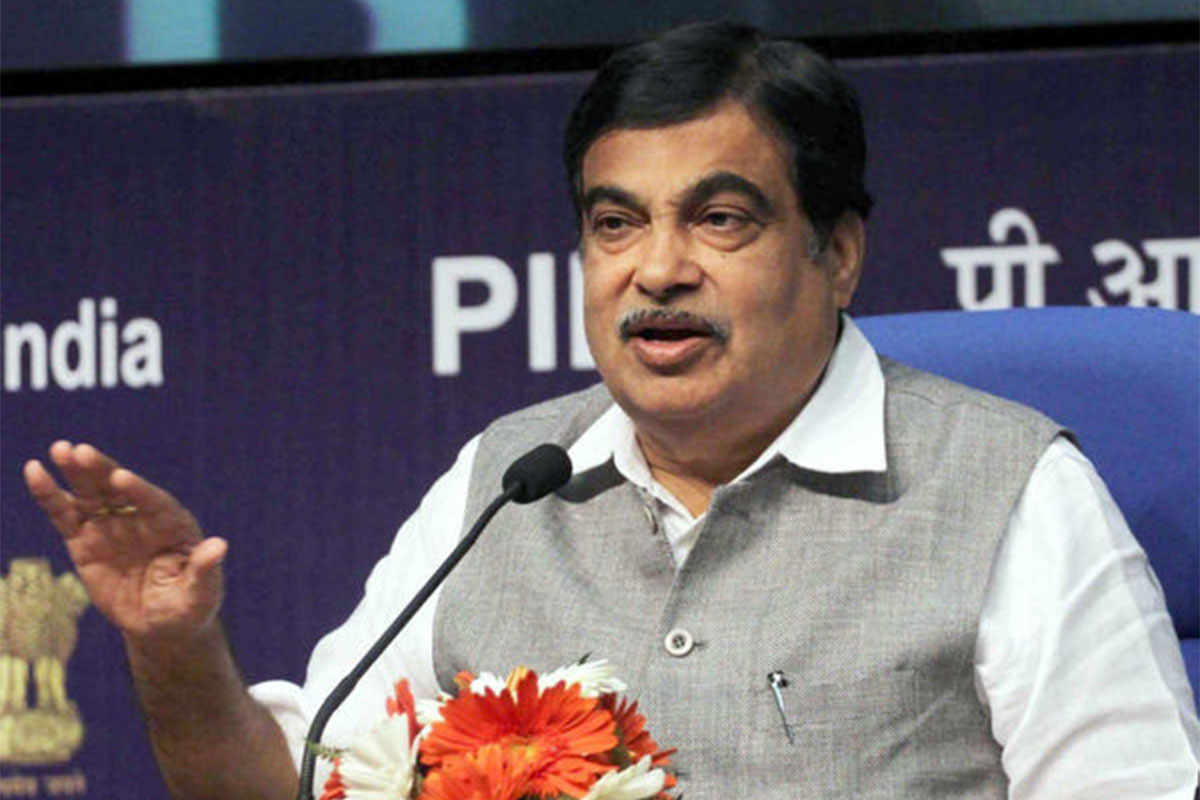Lok Sabha elections: BJP’s second list of candidates out, Khattar to contest from Karnal
Names of union ministers Nitin Gadkari and Piyush Goyal also feature in the second list of BJP's 72 Lok Sabha candidates.
One of the major initiatives taken in 2021 was the announcement of the voluntary Vehicle Scrappage Policy, which will phase out unfit vehicles from the country.

Union Minister Nitin Gadkari. (Photo: IANS)
The year 2021 was significant for the Ministry of Road Transport and Highways as, under the leadership of Nitin Gadkari, it not only continued with the good work done previously but also initiated a series of measures that will have a far-reaching impact on the life of the citizens.
The ministry carried forward with its mission to build good quality National Highways (NHs) during the year. In the last 7 years, the length of NHs has gone up by more than 50 per cent from 91,287 km (as on April 2014) to around 1,41,000 km now. All this happened despite the adverse situation due to Covid restrictions and heavy and long monsoon season, a government note said.
The Union Cabinet approved “PM Gati Shakti – National Master Plan (NMP)”, including an institutional framework for rolling out, implementation, monitoring and support mechanism for providing multi-modal connectivity. The plan was launched by Prime Minister Narendra Modi at an event at Pragati Maidan in the national capital.
Advertisement
The ministry is working actively to realise the Prime Minister’s vision of building an integrated multi-modal national network of transportation and logistics as part of the “PM GatiShakti – National Master Plan”. Work on the Multi-Modal Logistics Parks (MMLPs) gained momentum in 2021, with tenders being invited for two MMLP projects – at Nagpur (Sindhi) and Chennai.
One of the major initiatives taken in 2021 was the announcement of the voluntary Vehicle Scrappage Policy, which will phase out unfit vehicles from the country.
The policy, launched by Prime Minister Modi at a function in Gandhinagar (Gujarat), will not only reduce pollution, caused by the old, unfit vehicles from the road but also lead to substantial employment generation. The policy intends to create scrapping infrastructure in the form of Automated Testing Stations and Registered Vehicle Scrapping Facilities (RVSFs) across the country. Work on it has already started. The first such facility at Noida was recently inaugurated by Gadkari.
While work continued on the different NH projects and tunnels at high speed, including Delhi-Mumbai Expressway, Bangalore-Chennai Expressway and Zojila Tunnel, the foundation stone was laid for many projects by Prime Minister Modi, like the Delhi-Dehradun Expressway which will reduce the travel time between Dehradun and the national capital.
As part of the citizen-centric move, the ministry started a new registration mark for vehicles under BH series, wherein those eligible for the scheme need not change the number plate of their vehicle while shifting to another state. This was done to ease the burden of re-registration, which is a cumbersome and time-consuming process. In a significant step towards a seamless movement of vehicles on the National Highways, the ministry made it mandatory to use FASTag at all the toll plazas.
A number of steps were taken in 2021 to improve the road safety scenario in the country, which includes the announcement of a reward scheme for ‘Good Samaritan’ and the constitution of a Road Safety Board. Similarly, several steps were taken to encourage the use of eco-friendly vehicles and fuel in order to make the environment cleaner.
A special campaign was launched to dispose of pending files. Accordingly, monitoring of disposal of pending MP references as on 30 September, 2021 was done on a daily basis through a dedicated portal and efforts were made for its quality disposal through coordination among different offices. Out of 909 references pending as on 30 September, 830 replies were given by the RTH Minister till 14 December and in a day, a maximum of 169 MP references were disposed of. Similarly, through daily monitoring and in collaboration with concerned offices, the ministry achieved a major target to dispose of 125 state government references, 1339 public grievances and 644 PG appeals during the campaign.
Advertisement